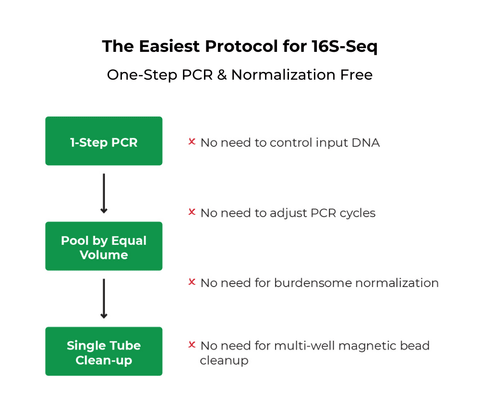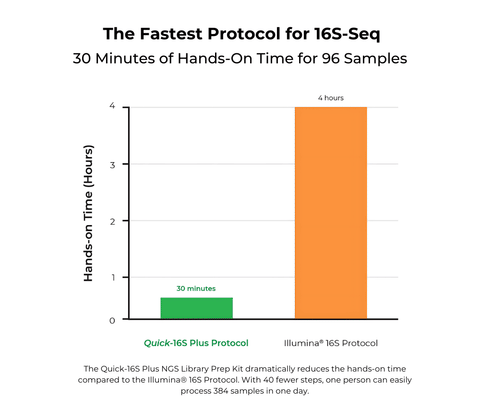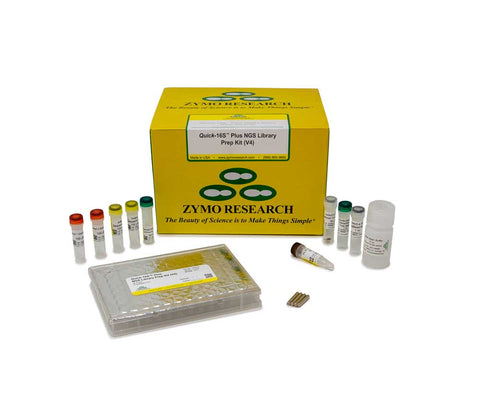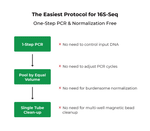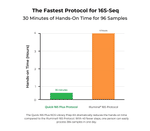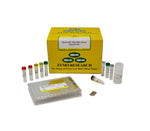Successfully Added to Cart
Customers also bought...
-
 DNA/RNA Shield (50 ml)Cat#: R1100-50DNA/RNA Shield reagent is a DNA and RNA stabilization solution for nucleic acids in any biological sample. This DNA and RNA stabilization solution preserves the...
DNA/RNA Shield (50 ml)Cat#: R1100-50DNA/RNA Shield reagent is a DNA and RNA stabilization solution for nucleic acids in any biological sample. This DNA and RNA stabilization solution preserves the... -
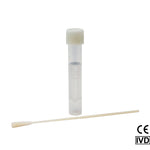 DNA/RNA Shield SafeCollect Swab Collection Kit, 1ml (1 collection kit)Cat#: R1160The DNA/RNA Shield SafeCollect Swab Collection Kit is a user-friendly collection kit for stabilizing the nucleic acid content of samples collected with a swab. DNA/RNA Shield completely inactivates harmful pathogens...
DNA/RNA Shield SafeCollect Swab Collection Kit, 1ml (1 collection kit)Cat#: R1160The DNA/RNA Shield SafeCollect Swab Collection Kit is a user-friendly collection kit for stabilizing the nucleic acid content of samples collected with a swab. DNA/RNA Shield completely inactivates harmful pathogens...
Quick-16S Plus NGS Library Prep Kit (V4)
| Cat # | Name | Size | Price | Quantity |
|---|
Highlights
- Fast: 8x less hands-on time than conventional 16S library prep protocols.
- Easy: Premixed Plate minimizes hands-on time and handling errors.
- Simple Workflow: 100% Automation ready with only a single PCR step and no need for normalization. Just pool by equal volume!
Documents
Product Description
Technical Specifications
| Amplicon Size | The final amplicon size after 1-Step PCR (targeted amplification and barcode addition) is ~388 bp. |
|---|---|
| Equipment Needed (user provided) | Microcentrifuge, plate spinner (centrifuge), 96-well real-time quantitative PCR system (SYBR Green compatible recommended), or standard PCR system, and 96-well real-time PCR plates. |
| Index Sequences | 10 bp indexes are listed in the MiSeq Sample Sheet Template provided. |
| Sample Input | Purified microbial DNA (≤100 ng), free of PCR inhibitors. |
| Sequencing Platform | Compatible with all Illumina® sequencing platforms using custom sequencing primers. We recommend the MiSeq® Reagent Kit v2 (300-cycle). |
| V4 Primer Sequences (adapters not included) | 515f (GTGYCAGCMGCCGCGGTAA) and 806r (GGACTACNVGGGTWTCTAAT). |
Resources
Q1: What samples are compatible with this kit?
Purified total DNA from any organism free from PCR inhibitors. This system has been used by Zymo Research’s Microbiomics Services team to process samples from human, water, soil, food, plants, feces, biofilms, and much more.
Q2: What is the minimum DNA input for this kit?
The system has been tested with inputs as low as 100 femtograms with no significant impact to the performance of the kit.
Q3: Why does the kit use only a single PCR amplification step?
This single PCR step combines targeted amplification of the microbial genome and the barcoding index PCR, which allows for a simple and fast workflow.
Q4: How does the kit achieve normalization?
The combination of using Equalase qPCR Premix to yield roughly equal amounts of libraries and a carefully curated barcode index list results in similar raw sequencing reads across samples.
Q5: Why is the library amplicon size not well defined in DNA fragment analysis?
Equalase amplification and the library prep design may cause some library products to not anneal well, causing a lack of a tight band. These libraries are perfectly fine because preparation for Illumina sequencing includes denaturing libraries into single strands.
Q6: Why do I need to spike in custom sequencing primers?
This library has been designed to be sequenced using any 300-cycle reagent kit. The use of custom sequencing primers allows for a bit of overlap between reads when using Paired End sequencing, which improves the data quality.
| Cat # | Name | Size | Price | |
|---|---|---|---|---|
| D4302-5-10 | ZymoBIOMICS DNase/RNase Free Water | 10 ml | $32.70 | |
| D6305 | ZymoBIOMICS Microbial Community DNA Standard | 200ng | $121.30 | |
| D6306 | ZymoBIOMICS Microbial Community DNA Standard | 2000ng | $242.80 | |
Related Products
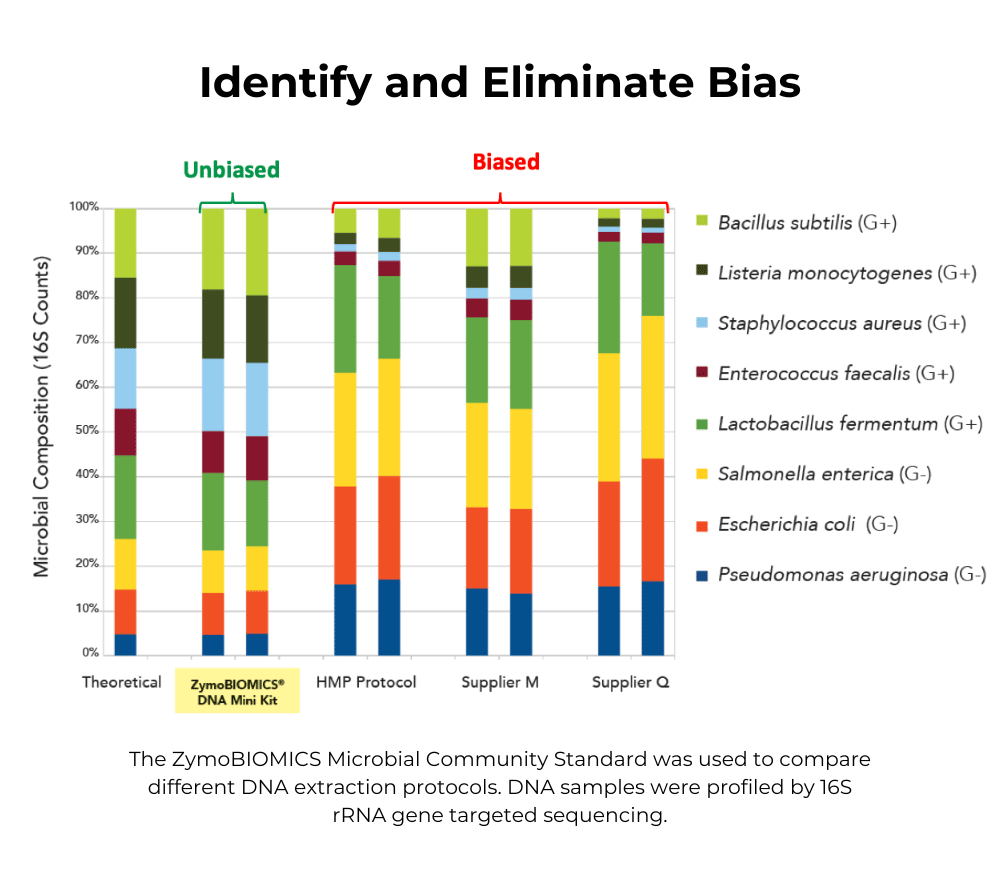
D6300
ZymoBIOMICS Microbial Community Standard
Microbial composition profiling techniques powered by Next-Generation sequencing are becoming routine in microbiomics and metagenomics studies. However, thes...
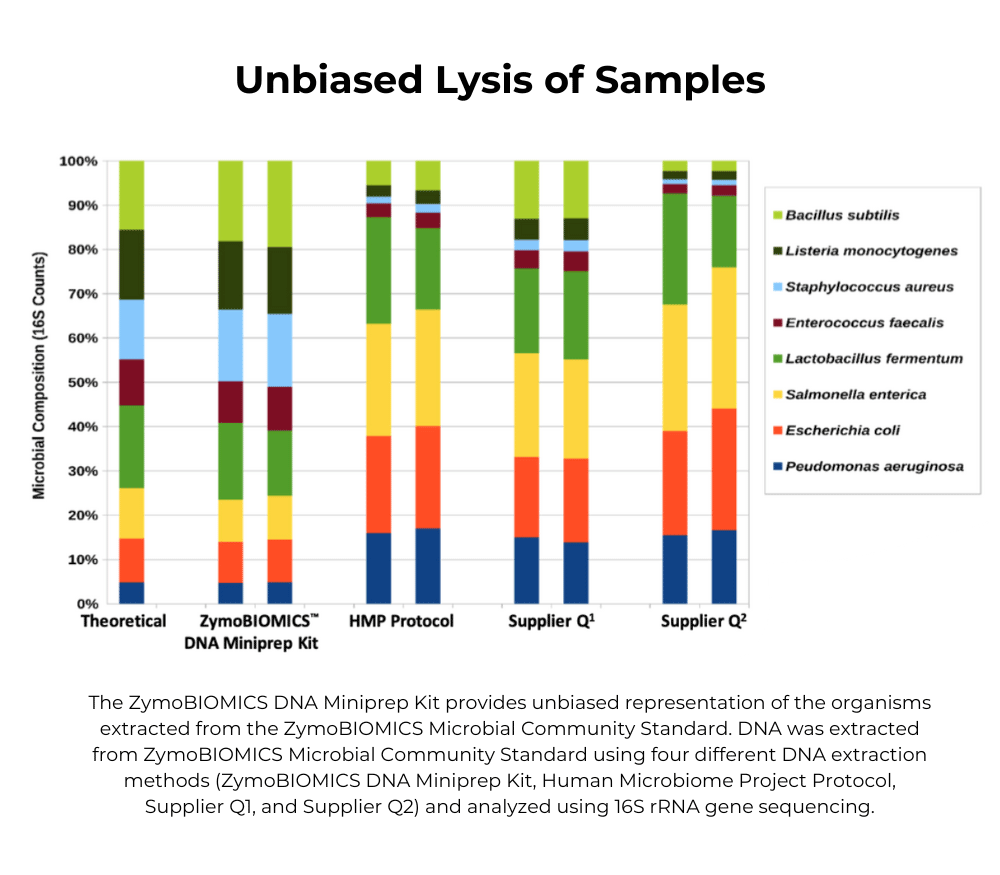
D4300, D4300T, D4304
ZymoBIOMICS DNA Miniprep Kit
Efficient microbial DNA purification from low sample inputs for highly accurate microbiome and metagenome analyses.
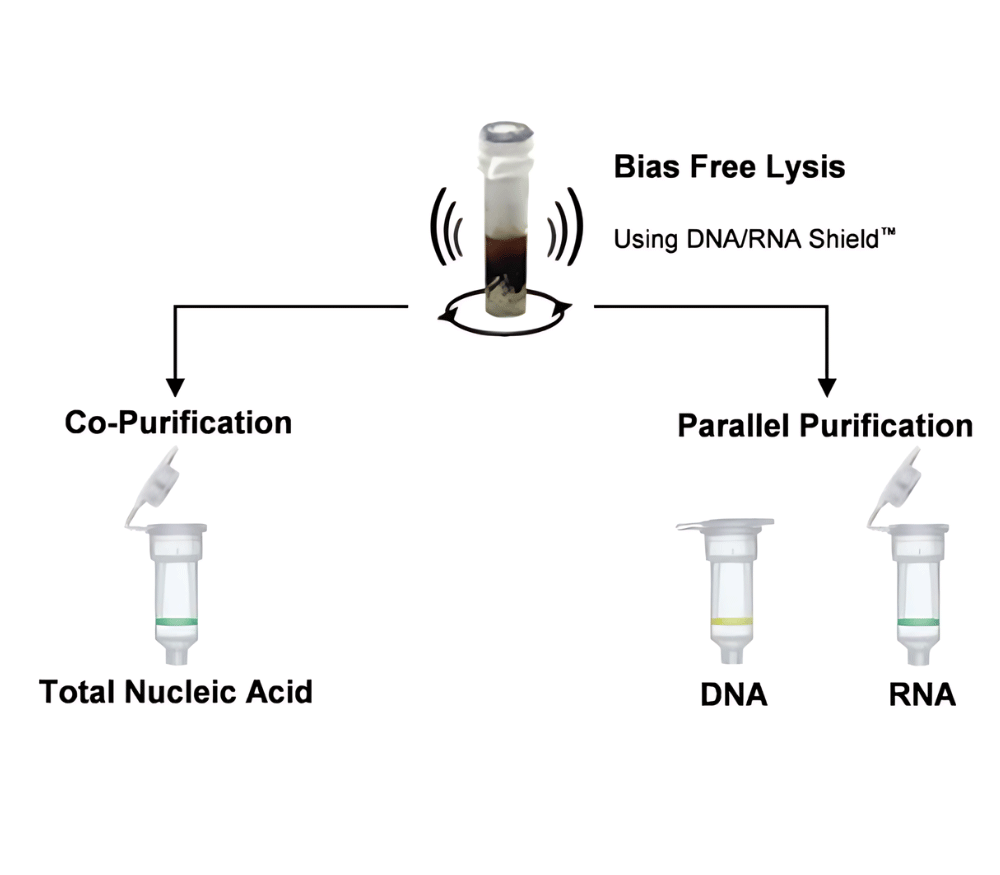
R2002
ZymoBIOMICS DNA/RNA Miniprep Kit
The ZymoBIOMICS DNA/RNA Miniprep Kit is designed for purifying DNA and RNA from a wide array of sample inputs (e.g. feces, soil, plant, water, and biofilms) ...
Need help? Contact Us


